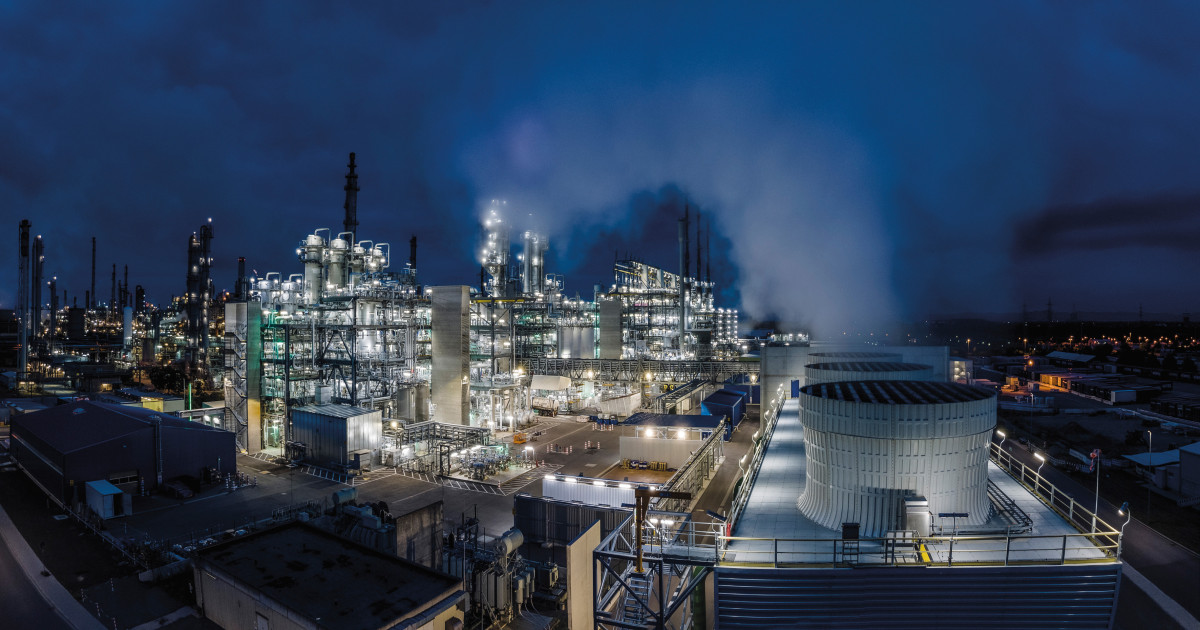Proposed investment aid to spur German industry decarbonisation
Citing Germany's poor economic performance, the country's economy ministry says it wants to invest heavily in businesses to help them make the transition to climate neutrality and remain competitive, according to a new set of proposals to boost innovation. "In light of the geopolitical challenges and structural problems in Germany and Europe, we have to unleash new potential," said economy minister Robert Habeck in a statement announcing the proposals.
One tool Habeck proposes to unleash such potential is a "Germany Fund" from which companies would be paid a 10 percent premium for investments – excepting investments in buildings. For example, the state would pay a premium of 10,000 euros for an investment of 100,000 euros.
"Climate-neutral modernisation, a new investment dynamic and a sustainable industry require massive investments," according to the proposals, which also note that Germany is falling behind in this regard due to its "restrictive budget, which distinguishes us from the vast majority of other countries."
The minister plans to send the proposals to numerous business associations representing start-ups, trades, SMEs, industry, trade unions and economists, and invite them to discuss them at the end of November.
In contrast to other major economies, Germany's is expected to stagnate this year, after a slight contraction in 2023. Habeck's new proposals follow closely on the heels of other support measures. Just last week, 15 companies in were awarded support guarantees in the first round of the so-called ‘climate contracts.’
Making investments easy and attractive
According to the proposals, the goal of reaching climate neutrality by mid-century has broad European support under the banner of the EU's Green Deal – a landmark set of climate policies, rules and legislation. Part of the aim of the deal is to boost the EU's industrial competitiveness and to produce new green technologies in the bloc. But this transformation can only happen with stability, investment and a clear legal framework, according to the proposals, which also stated that for these reasons "we should not keep questioning the phasing out of the fossil combustion engine".
In the accompanying statement, Habeck addressed arguments that climate protection is harming the economy. He argued that it was "the climate crisis that is forcing us to make changes". "That is why climate-neutral modernization is a central political task. What companies rightly demand is certainty in planning and pragmatism in implementation. We should strengthen both," he added.
The document calls for "pragmatic implementation" of all "realistically available technology options," citing Germany's introduction of laws to accelerate hydrogen, renewables and the use of carbon capture and storage. It also says lawmakers should secure major "transformative" projects such as the production of electrolysers or wind turbines with investments and financing strategies.
According to the economy minister, Germany should also ensure electricity prices come down for businesses and consumers to retain its status a major industrial player. To do so, it must continue to consistently expand renewables, which have already contributed to a drop in wholesale electricity prices. The proposals also suggest a cut in electricity VAT rates as another solution. Financing electricity grid infrastructure via a possible "Germany Fund" could also potentially lower prices through cheaper grid fees.
Largely positive reactions to Habeck's proposals
According to n-tv, a government spokesperson said Habeck was acting of his own accord with the modernisation agenda, adding the paper was "a proposal in the political debate", to which people should give intensive thought.
The response was mixed from the Green Party's coalition partners. Free Democrat (FDP) deputy leader Wolfgang Kubicki dismissed Habeck's plan as fatuous. He added that it was unclear where the money would come from and that Habeck seemed to be more concerned with blaming the FDP-controlled finance ministry for the country's economic woes because the party wants to comply with the debt brake, n-tv reported. The FDP has previously called Germany's constitutional debt brake, which aims to limit the country's public debt, "non-negotiable".
The Social Democrats (SPD), on the other hand, signalled support. "I myself have been calling for such a fund to boost investment in Germany and provide companies with targeted support for some time," SPD secretary general Matthias Miersch said in the Rheinische-Post.
Economists, like Moritz Schularick, president of the Kiel Institute for the World Economy (IfW), welcomed the paper for bringing "much-needed momentum to the debate on the necessary changes to the German economy".
"However, the minister has failed to answer the question of how the proposed measures will be implemented and financed in the current political environment.," added Schularick.
Clemens Fuest, head of the Ifo Institute for Economic Research, considered additional tax incentives for investment to be well-founded but stated that any instrument should come with as little bureaucracy as possible. He questioned the necessity of a new fund "unless you want to finance it with loans and take on special debt."
In an interview with ZDF, head of the Leibniz Centre for European Economic Research, Achim Wambach, said Germany had serious disadvantages as place to do business because of high energy prices, high corporate taxes and burdensome regulation. An investment fund won't help, he said. Instead, the country needs structural reforms.
Germany's struggling economy
Europe’s biggest economy still has a large industrial base, and the country's industry has supported the move to climate neutrality on the assumption that Germany can become a major green tech exporter. But higher energy prices, fuelled by Russia’s war against Ukraine, weigh on energy-intensive sectors, which now struggle to make the investments necessary for decarbonisation.
A draft federal budget for 2025 left open questions on the future of the Climate and Transformation Fund, Germany's main public budget vehicle for climate policy financing, which faces a hole worth billions of euros following a constitutional court ruling. The government was thus forced to make tough decisions about their spending priorities.


